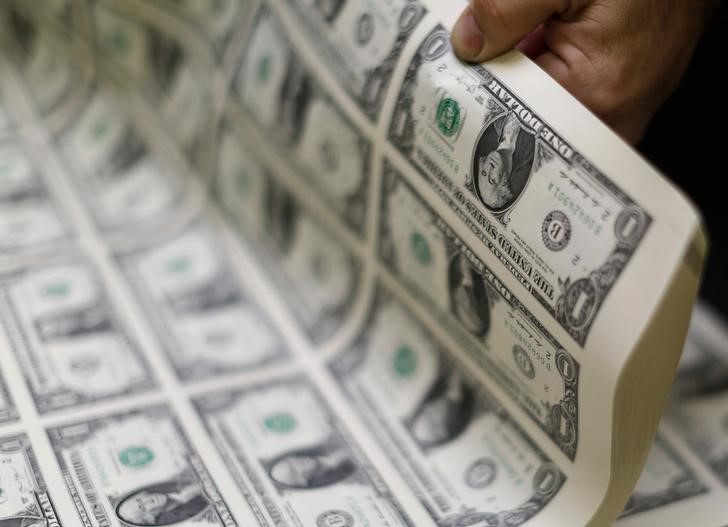Investing.com - The dollar fell against a basket of other major currencies on Thursday, after data showed that he U.S. economy added fewer jobs than expected last month data, dampening expectations for a rate hike.
The Labor Department reported that the economy added 223,000 jobs in June, compared to expectations for jobs growth of 230,000. May’s figure was revised down to 254,000 from 262,000 previously.
The unemployment rate ticked down to 5.3% last month, from 5.5% in June. Economists had expected the jobless rate to decline to 5.4%.
A separate report showed that the number of individuals filing for initial jobless benefits in the week ending June 27 increased by 10,000 to 281,000 from the previous week’s total of 271,000. Analysts had expected initial jobless claims to fall by 1,000 to 270,000 last week.
EUR/USD rose 0.37% to 1.1095.
The euro's gains were capped however, as Greek Prime Minister Alexis Tsipras on Wednesday urged Greeks to reject an international bailout deal in a referendum due to be held on July 5, souring hopes of any breakthrough.
Less than 24 hours before, Tsipras had written a conciliatory letter to creditors asking for a new bailout that would accept many of their terms.
On Wednesday Greece became the first developed country to default on the International Monetary Fund after its second bailout program expired late Tuesday. The IMF confirmed that the Greek government failed to make a scheduled €1.6 billion loan repayment.
Earlier Thursday, data showed that the number of unemployed people in Spain dropped by 94,700 last month, compared to expectations for a decline of 124,000. In May, the number of unemployed people fell by 118,000.
The pound was steady, with GBP/USD at two-and-a-half week lows of 1.5615.
Markets shrugged off a report on Thursday by research group Markit showing that the U.K. construction purchasing managers' index rose to a four-month high of 58.1 this month from 55.9, beating expectations for a reading of 56.5.
Elsewhere, the dollar was steady against the yen, with USD/JPY at 123.10 and lower against the Swiss franc, with USD/CHF slipping 0.18% to 0.9469.
The Australian and New Zealand dollars were weaker, with AUD/USD down 0.41% at 0.7613 and with NZD/USD retreating 0.62% to fresh five-year lows of 0.6693.
The Australian Bureau of Statistics earlier reported that the country's trade deficit narrowed to A$2.75 billion in May from A$4.14 billion in April, whose figure was revised from a previously estimated deficit of A$3.89 billion.
Analysts had expected the trade deficit to narrow to A$2.20 billion in May.
Meanwhile, USD/CAD was almost unchanged at 1.2589, down from highs of 1.2633 hit earlier.
The U.S. dollar index, which measures the greenback’s strength against a trade-weighted basket of six major currencies, was down 0.20% at 96.28.
